How Capitalism helped to win the war
“We won because we smothered the enemy in an avalanche of production, the like of which he had never seen, nor dreamed possible.” ___ William Knudsen, Pres. of G.M.
William ‘Bill’ Knudsen’s story is detailed in the video Capitalism in World War II: The Arsenal of Democracy.
Capitalism in WWII: Andrew Higgins “The Man Who Won WWII” covers Andrew Higgins, whose landing craft designs, based on his own experiences building shallow-water boats in New Orleans, dramatically shaped the way the U.S. military fought World War II. With its enemies oceans away, the U.S. military relied on these small, purpose-built crafts to put boots on the ground.
Rob Citino:
Well first of all, what America was able to do as a result of individuals like Bill Knudsen and Andrew Higgins, and also as a result of our social economic system and as a result of our fantastic material wealth (much of which was lying fallow during the depression) was to mass produce and employ an economy of scale on a way that was just unheard of to the other countries, with the possible exception of the Soviet Union. If you look at others, another name that has to be mentioned up top is Henry Kaiser. He was the master builder of the war. Kaiser was an energetic and hard driving guy, he was always going in all directions at once. Kaiser would help build the Hoover Dam and the Grand Coulee Dam.
Kaiser went from construction to shipbuilding, having never built a ship before in his life, during World War II in Richmond, California and Portland, Oregon. They were Liberty Ships, a kind of a floating train car, the most ungainly think you could ever imagine, and he banged them out with abandon.
It used to take months to build a ship. Kaiser’s company could bang them out in 10 days. A ship is a funny thing to build because for most construction projects you speed up at the end. You’ve done all of the heavy lifting in the beginning and at the end it really goes quickly. Shipbuilding goes slowly at the end because you have to put the deckhouses on, but you can clamp together the hull fairly quickly. Kaiser was the one who hit on the notion that you can prefab these things, preassemble the deckhouses and then use a crane to put them on top of an already full constructed ship. I think that was a real breakthrough in shipbuilding.
If we were going to come to grips with our enemy in the Pacific, Japan, an island nation all the way across the Pacific, or in Europe, Germany, we had to get across the Atlantic to get there. We had to form and deploy gigantic forces in a short amount of time, and the only way to get them there is by sea. You can air transport light forces into a theater, like paratroopers and light vehicles perhaps, but in order to bring the heavy metal (the way the United States fights wars is with a lot of materiel, a lot of ammunition, and a lot of heavy artillery) if you’re going to get these things to theater, the only way you can do it is by sea.
The real peak of that achievement is June 1944: spearheading an alliance, the United States landed a massive force in Europe, tens of thousands on the first day and millions of follow-on forces, and literally within weeks launched a gigantic landing on the island of Saipan in the Marianas. There has never been a military power before, and maybe there never will be again, with that kind of global reach. And it’s things like being able to build a Liberty Ship faster than the Germans could torpedo them in 1942 that enabled this. It’s nothing romantic, it’s a battle of attrition.
You have to produce more than you’re losing. And, by and large, that is the margin of victory across all fronts for the Americans in World War II. So it is someone like Knudsen, an expert on production and the assembly line, someone like Higgins, building a little shallow draft boat for river traffic down here in the New Orleans swamps and bayous, someone like Kaiser, figuring out a way to build a big transport ship in an ungodly short amount of time, that allows America to fight the war of the rich man.
There’s a famous book, Arthur Herman’s Freedom’s Forge, which attributes the entire success of the World War II economy onto a handful of these Knudsens and Higgins’ and Kaisers that you and I have been talking about. They brought their patriotism forward, the innovation, the entrepreneurial skills that U.S. workers on all levels enabled.
I don’t deny any of that, but the portrait has been overdrawn. Cost-plus contract gave every World War II contractor a guaranteed 8 percent profit, more or less. A guaranteed 8 percent profit is a lot of money for a $10 billion industry. Things like Cost-plus contract, a five-year amortization rather than 16, and letters of intent that could be used for borrowing [also impacted the success of the World War II economy]. Henry Stimson who was Secretary of War at the time said “you have to let business make money, otherwise business won’t work.”
Robert M. Citino (born June 19, 1958) is an American military historian and the Samuel Zemurray Stone Senior Historian at the National WWII Museum. He is a leading authority on modern German military history, with an emphasis upon World War II and the German influence upon modern operational doctrine.
Click on images to enlarge.
#############################################################################################
Military Humor –
#############################################################################################
Farewell Salutes –
Daryle E. Artley – Maywood, NE; US Navy, WWII, Quartermaster 2nd Cl., USS Oklahoma, KIA (Pearl Harbor)
Riley Burchfield – Cleveland, OH; US Army, Korea, Sgt. 1st Cl., Co. D/1/24/25th Infantry Division, POW, KIA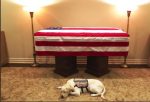
Roy Christopher – Fort Lawn, SC; US Army, WWII, POW
James Dunn – Larkhall, SCOT; RAF, WWII, ETO
Harold Graver – Victoria, CAN; Royal Canadian Engineers, WWII
George Kimberly – Blunt, SD; US Army, Korea, 187th RCT
Tom Luey – Oakland, CA; US Army Air Corps, WWII, CBI, 14th Air Service Group
Steve Nagy – Lorain, OH; US Army Air Corps, WWII, ETO, 1st Lt., pilot, 407/92/40/1st Air Division, KIA (Germany)
Louis Schultz – Ottawa, IL; US Merchant Marines, WWII
Frank Williams – Dumas, TX; US Army, WWII, ETO, communications
#############################################################################################
Posted on December 2, 2019, in Home Front, Uncategorized, WWII and tagged 1940's, Capitalism, History, Home Front, Military, Military History, Pacific, veterans, Vintage, WW2, WWII. Bookmark the permalink. 122 Comments.
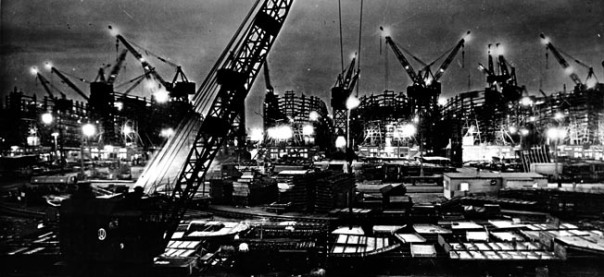

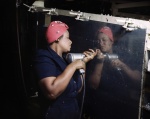
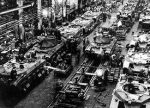

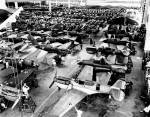
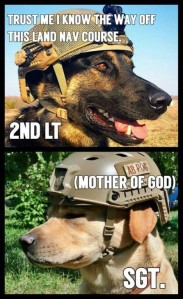
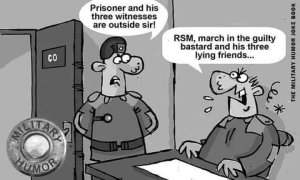







Interesting post!
LikeLiked by 1 person
I appreciate your visit.
LikeLike
It had a defined and clear purpose, and it became the powerhouse of victory and post war rebuilding, but although every model suffers greed and corruption, my view is that capitalism has more recently become self serving and has truly lost its moral compass, it has none of the ethic of the war effort or rebuilding.
LikeLiked by 2 people
Greed and other self-serving ideals are positively nothing new. As we produce more humans and technology instantly informs us of their every movement – it just appears to be “these days” corruption has increased.
LikeLiked by 3 people
Yes, but it would be great to have a unifying and positive purpose, I dream on 🙂
LikeLiked by 1 person
Don’t we all!
LikeLiked by 1 person
🙂
LikeLiked by 1 person
Reblogged this on depolreablesunite.
LikeLiked by 1 person
Thanks, Rick.
LikeLike
enjoyed this a lot – and the first time I heard that “was is good for business” was in a high school history class. and just recently we watched some documentaries on Netflix (have you seen their WWII series with footage from around the world and edited in color)
well it just too happened to be close to Dec 7th – but we did not plan it – and the pearl harbor one really was done well.
oh and back to this post – such a god line:
“you have to let business make money, otherwise business won’t work.”
LikeLiked by 1 person
Exactly. I’m glad you found it interesting.
And, No, I don’t have Netflix.
LikeLiked by 1 person
😊
LikeLiked by 1 person
Interesting history lesson!
LikeLiked by 1 person
Too many consider capitalism a bad word these days.
LikeLiked by 1 person
And what about Edsel Ford? I read that he turned most Ford manufacturing plants to wartime production of aircraft engines and military vehicles.
LikeLiked by 1 person
Yes, you’re quite right. There were many companies that should have been mentioned here, I merely used these to make a point. Some people these days consider capitalism a bad word – I was attempting to show just how useful it can be.
My father taught me that no matter how big or small the problem (argument, debate, etc) there are always more than two sides – look everywhere for the truth.
LikeLike
Reblogged this on John's Notes and commented:
I liked this post by GP Cox. Surely the American industrial complex was a substantial factor in the outcome of WWII. Converting the focus of Detroit from building autos to cranking out a complete B-24 Liberator bomber every 60 minutes says a lot of what American industry accomplished and how they literally buried the Axis powers in our output.
LikeLiked by 1 person
It shows what we can do when we put our minds to it, eh?!!
Thank you for sharing this, John.
LikeLike
I love this. Thanks for sharing.
LikeLike
I appreciate you taking the time to stop over here.
LikeLiked by 1 person
Interesting!
LikeLiked by 1 person
Thank you.
LikeLiked by 1 person
But it was not massive corrupt capitalism.☕️😎☕️
LikeLiked by 1 person
You will find corruption in every methods of government and every method of supply and demand – it all involves money!
LikeLiked by 1 person
True but WWII was different because corruption was handled immediately.
LikeLiked by 1 person
They sure didn’t handle it with Chiang kai Shek.
LikeLike
So glad to see that we are on the same page on Schiff. He is shaking in his pants for being exposed very soon
LikeLiked by 1 person
I hope he is exposed soon for what he is.
LikeLiked by 1 person
Dare I say next week hopefully?
LikeLiked by 1 person
Wouldn’t that be nice!!
LikeLike
AS has a lot to hide regarding the Standard Hotel in California and his involvement with harassing President Trump. We are waiting on William Barr’s declassification of documents to be released. Then the OIG rapport and the Horowitz rapport on FISA abuse.
LikeLiked by 1 person
Should be interesting.
LikeLike
Up here in Socialist Canada, Capitalism is a bad word. We’ve been trying to get a pipeline to the coast for nearly 10 years. Blocked by environmental lobbyists. This has taken billions out of our economy. But we don’t want to damage a tree do we? Our values have become so twisted it’s mind boggling.
The awakening of American industrial power during the War was astounding. Saved our ***es.
LikeLiked by 2 people
With a bit more capitalism and a bit less socialism, you might get it finished!
We’ve a saved a lot of a**es, but few appreciate it after it’s all said and done.
LikeLiked by 1 person
THe incredible sacrifices, the support through the purchases of war bonds in such high amounts, the jobs, which all related to the war in one way or another…it was the way to win the war and establish the grounds for peace and for the rebuilding of those areas devastated in Europe. Quite a difference from the way it is now. George W. Bush told the people of the US to go out to the Mall! No sense of sacrifice. No sense of participation, even in the civilian sphere. No sense of military, when many units were replaced by civilian companies doing the work that soldiers did before. A great and informative piece and I truly admire your dedication to truth and to history and thank you for your service. Although I am a Spaniard, I lived in the US and I served in the US Army and in the US Coast Guard Auxiliary for many years.
My greetings from Spain, I’ve returned home, and all the best,
FBC
LikeLiked by 1 person
Thank you for your comment. I am very happy to receive the opinion of other countries and you have seen both worlds!! Unfortunately, our military being volunteer and being expected to be scattered around the world, the outside companies were needed to fill the void. I don’t like the mercenaries, but sending our military out for 5, 6 or more deployments is asking for trouble too. Hope I’ll hear from you again.
LikeLiked by 1 person
I agree and I greatly admire your blog and will always look forward to reading your posts and hopefully adding good comments. Thank you!
LikeLiked by 1 person
I just came from your site and yes, I think we will be seeing each other again!!
LikeLiked by 1 person
Thank you!!!
LikeLiked by 1 person
I don’t consider myself a far-right person. I’m a patriot and lover of democracy, the constitution, and feel Capitalism isn’t a dirty word. I’m scared to death of Big Government, Socialism, and a government that has control over my life. Didn’t it used to be like that for most people? That is, during WWII, the world was glad for our capitalism.
LikeLiked by 1 person
Yes they did. I have no idea how sentiments got turned around. But then again, the “hippies” and socialists of the 1960’s are now teaching our children in college, so who knows what to think?
LikeLiked by 1 person
The truth of this was made apparent in James Holland’s Normandy ’44.
LikeLiked by 1 person
Then, you already knew! I should have guessed. Frankly, I had never thought of it in the terms of capitalism. Being as I grew up with free enterprise being the norm, I suppose.
LikeLiked by 1 person
Nor me. I learned from the book
LikeLiked by 1 person
I must admit, I’d never heard of Henry Kaiser until now. From a month to 10 days to build a ship! That’s incredible. There are so many ‘unsung heroes,’ that helped win that war. Thanks for sharing, GP. Your posts are always educational and interesting.
LikeLiked by 1 person
At some point, I know you must have heard of Kaiser Aluminum, Kaiser Steel or Kaiser Motors? The war made the corporations we grew up with!!
LikeLiked by 1 person
Yes, I have heard of those, just never made the connection.
LikeLiked by 1 person
I thought that might help. I appreciate your interest, Mark.
LikeLike
It did. I guess we often don’t think about theorigin of companies and how how much wars shape our lives.
LikeLiked by 1 person
People today don’t think they can learn from the past.
LikeLiked by 1 person
You are so right about that! You know what they say. “Those who refuse to learn from the past are . . . ” Well, you know the rest.
LikeLiked by 1 person
I do – but do THEY? lol
LikeLiked by 1 person
To provide some details of what Amy said in her comment, the figures for the use of slave labour, mainly Poles and Russians, were published recently by the German magazine “WirtschaftsWoche”:
They were BASF (80,000), Bayer (80,000), BMW (50,000 Bosch (20,000), Daimler-Benz (40,000), Hoechst (80,000), Thyssen-Krupp (75,000) and Volkswagen (at least 12,000). Siemens refused to provide any figures. The majority of these men would have died.
Allianz incidentally provided the insurance for Auschwitz and the other camps. Premiums were very low because Allianz were very impressed by the efficiency of the SS guards.
Even more detail is provided at https://en.wikipedia.org/wiki/List_of_companies_involved_in_the_Holocaust
That is the bad side of capitalism, and is something to which neither British nor American companies have ever stooped. Indeed, those American companies in WW2 demonstrated clearly that it is possible to produce amazing amounts of materiel using just the good will of the workers (and the occasional hefty bonus!)
LikeLiked by 2 people
Thank you, John. I am going to tell Amy to come read this added information.
LikeLike
Thanks, John, for supplementing my comment. When we visited Auschwitz in 2015, I was just horrified by what we learned about the complicit behavior of many corporations that still exist today. The extent to which greed can contribute to evil is horrifying. It wasn’t just manpower. These companies used their “ingenuity” to help the Nazis create the killing machinery—the crematoria, the Zyklon-B used in the gas chambers, and the means of keeping records of all those who were imprisoned and murdered. They all made money by contributing to the murders of millions of innocent people.
LikeLike
Very thought provoking. I know that the US raised money through war bonds but how else did the state pay for all this? Or did the stimulation in war production stimulate the economy and so pay for itself? I know that the UK borrowed a lot from the US (post war to as part of the Marshall Plan) and only recently paid off that debt. It raises interesting questions about the role of capital – these days a lot of capital is hidden in off-shore tax accounts by the big tech companies. I always think that vast wealth is wasted just sitting there.
LikeLiked by 1 person
For one thing, taxes were raised and then there was the “Victory Tax” of 1942 sharply raised income tax rates and allowed, for the first time in our nation’s history, taxes to be withheld directly from paychecks. The hikes were originally intended to be temporary but…… The War’s primary source of funding, during the war, Americans purchased approximately $186 billion worth of war bonds, accounting for nearly three quarters of total federal spending from 1941-1945.
LikeLiked by 1 person
I forget that everyone has to do tax their own returns in the USA. In the UK most pay tax directly through their employers, only business (big and small) do their own tax returns here. I wonder how many people cashed those war bonds after the war? We sometimes see adverts for them in old war-time Hollywood movies.
LikeLiked by 1 person
I’m sure sooner or later most bonds were cashed in, but I did see one for sale on ebay the other day. We pay our taxes through our employer, but the IRS form is made out each year to level it out. I used to declare NO dependents, so the most tax was taken out. At the end of the year, after doing the form, I knew I would be getting a nice check for my refund. Some people want the money each week and pay what they owe at the end of a quarter or the year.
LikeLiked by 1 person
Thank for explaining that. People mention tax returns in TV shows/movies but I never knew how they worked.
LikeLiked by 1 person
Anytime.
LikeLiked by 1 person
I’ve heard stories that U.S. manufacturers made military equipment for our enemies during WWII. Any truth to those stories?
LikeLiked by 2 people
We tend to forget that the war actually started in 1939. Some of our companies were in business with Germany and the US sold scrap metal and aviation components to Japan, as an example. When FDR imposed the embargo on Japan, then that part halted and gradually Americans got out of Germany.
LikeLiked by 1 person
Economies matter; thanks for this post
LikeLiked by 2 people
Competition, innovative ideas, jobs, etc One big circle of a free country.
LikeLiked by 1 person
Amen
LikeLiked by 1 person
Reblogged this on John Cowgill's Literature Site.
LikeLiked by 2 people
Thank you, John!
LikeLiked by 1 person
You are very welcome.
LikeLiked by 1 person
My father helped build liberty ships, G, working for Hendy Iron Works in the Bay Area. It’s what brought our family to the Bay Area, including me at about three months old. –Curt
LikeLiked by 2 people
Then you know first hand! Back during WWII it was difficult to NOT have a job related to the war, eh?
LikeLike
I was a little young to make my contribution, though, G. 🙂
LikeLiked by 1 person
There’s nothing like the promise of profit to get the grey matter ticking.
Cynicism aside, a great article. Thank you 😉
LikeLiked by 2 people
No cynicism, Eric, you’re right. It’s all based on competition. And as I always say, ‘No matter what the question in the world – the answer is ALWAYS related to M*O*N*E*Y* !!
LikeLiked by 1 person
Another excellent post, GP. You cannot beat capitalism for learning the best way to produce more.
LikeLiked by 2 people
That’s why I don’t understand why people today talk about it being a bad thing.
LikeLiked by 2 people
Because they are spoiled and think that all the worlds riches should be divided equally and thus no need to work hard. Hard work is difficult for some. Give me the industrial, creative, and capitalistic mind over the socialist view of good everytime.
LikeLiked by 1 person
Agreed! All socialist governments ended up with the common person having to share – those in the upper echelon sure didn’t!!
LikeLiked by 1 person
So true. The socialists (or want to be socialists) today do not have a sense of history since they have never read or experienced it.
LikeLiked by 1 person
Exactly. They see no need to learn from the past – bad move.
LikeLiked by 1 person
Good summary and reminder that we did it in the 1940s. Probably could not do it today..
LikeLiked by 2 people
Could you just imagine the size of the government contracts it would take?
LikeLiked by 1 person
Since I used to write the RFQ for some government contracts, yes I can. It’s a multi-billion dollar business now. There also many requirements such as 8-A set-asides, the requirement for it to be an American company or at least an American subdivision, and other rules to make it fair,
LikeLiked by 1 person
You could certainly teach me a thing or two about that side of it!!
LikeLiked by 1 person
I took some government acquisition classes and did it for a few years as part of my job. I still don’t know more than I do know. And despite the regulations and numerous oversight committees, there are still scandals like the Navy’s Fat Leonard scandal with an unscrupulous businessman in Asia.
LikeLiked by 1 person
There will always be corruption. The battle between good and evil is unfortunately a human trait.
LikeLiked by 1 person
A very good information, GP! Yes! “Money makes the world go round”. But honestly, our Franz Joseph Strauß never had beaten the GDR by given money. My thoughts are the Allies dont want no more longer pay for two German states. 😉 Best wishes, Michael
LikeLiked by 2 people
Why would we continue to pay? I don’t understand.
LikeLiked by 1 person
😉
LikeLiked by 1 person
A fascinating read, GP. Love the dog cartoons. 😅
LikeLiked by 2 people
Glad you liked it. Too many people today think capitalism is a bad thing!
The dog – they’re always great!! 🙂
LikeLiked by 1 person
Always something new to learn here, GP!
LikeLiked by 3 people
Thank you so very much, Lavinia.
LikeLiked by 1 person
I concur! I learned a great deal as well. (I had a general sense of WWII material manufacturing, but not the specifics.)
LikeLiked by 1 person
Good and timely article, GP. I’ve noticed on a few blogs–of bloggers I like–they add ‘greedy’ when writing the word ‘Capitalist’. I just don’t get it so appreciate articles like yours.
LikeLiked by 2 people
Thanks. I know what you’re saying. They make capitalism sound like a bad thing – but where would we be without it?
LikeLiked by 1 person
Don’t forget Long Island’s own Grumman Aircraft who designed the first practical floats with a retractable landing gear for the Navy. The first Grumman aircraft was also for the Navy. Grumman became known for its “Cats”, F4F Wildcat, F6F Hellcat and for its torpedo bomber TBF Avenger.
LikeLiked by 2 people
Fairchild, Grumman, Republic – Bethpage and Farmingdale – big areas for aircraft construction!!
LikeLiked by 1 person
I have a friend who treated me like her daughter she never had and her husband and their eldest son worked for Grumman all their working years. I talked to Sam early this year (she passed on 7 years ago) and he was 102!
LikeLiked by 1 person
God Bless him! That generation sure had stamina!!
LikeLiked by 1 person
Great post, GP! Experts now say we should use the term “free market system,” however. 😉
LikeLiked by 2 people
Oh jeez, another politically correct term – I can’t keep up!
LikeLiked by 1 person
Lol! Glad I could help! 😂🤣
LikeLiked by 1 person
🙂
LikeLike
A very interesting background article, GP. Thanks for posting it.
Best wishes, Pete.
LikeLiked by 2 people
My pleasure, Pete. Thanks for reading it.
LikeLiked by 1 person
Very interesting. The Nazis, of course, also used the capitalist drive for profits to engage businesses to build and manage their methods for exterminating millions of people.
LikeLiked by 3 people
I am not as educated on that side as I should be, Amy. Thank you for the information.
LikeLiked by 1 person
Amy, you wish to return to Pacific Paratrooper when you get a chance. John Knifton included more information, building on your comment, including a link.
LikeLiked by 1 person
OK—Thanks! I will check it out.
LikeLiked by 1 person
I have always been amazed by the production numbers during WWII. Also, the fact that manufactures were able to switch from building cars to tanks and even planes was incredible. Building any kind of ship in 10 days is crazy, but that’s what was needed and that’s what was delivered.
LikeLiked by 2 people
Nowadays, corporations get outrageous contracts and we hope they deliver!!
LikeLiked by 1 person
Thank you for posting a defense of Capitalism!
•
The cartoon about the prisoner must have been (ahem) Adam Schiff’s model …
LikeLiked by 2 people
People try to make capitalism sound like the coming of Satan for crying out loud!
haha, Adam Schiff, that bug-eyed idiot is following whatever The Squad encourages. But then again, he’s from California , what do you expect?
LikeLiked by 1 person
Maria and I are proud that Bill Knudsen came from Denmark. A recent book “One Dollar Man” in Danish tells the story: The story of the bicycle smith who emigrated with an immigrant ship from Copenhagen in 1900 with 30 $ in his pocket. https://www.arnoldbusck.dk/boeger/biografier-erindringer/one-dollar-man
LikeLiked by 3 people
Thank you very much, Henry, for contributing this further information to the post! Much appreciated, my friend!
LikeLiked by 1 person
I really enjoyed learning about the Higgins boat story.
LikeLiked by 2 people
He was a very important part of us winning, that’s for sure!!
LikeLike
Yep, for sure. Sigh.
LikeLiked by 2 people
Thanks for coming.
LikeLiked by 1 person
Thank you.
LikeLike
Pingback: LINES & HOPE POST(2020 Countdown 6 of 31) – priorhouse blog